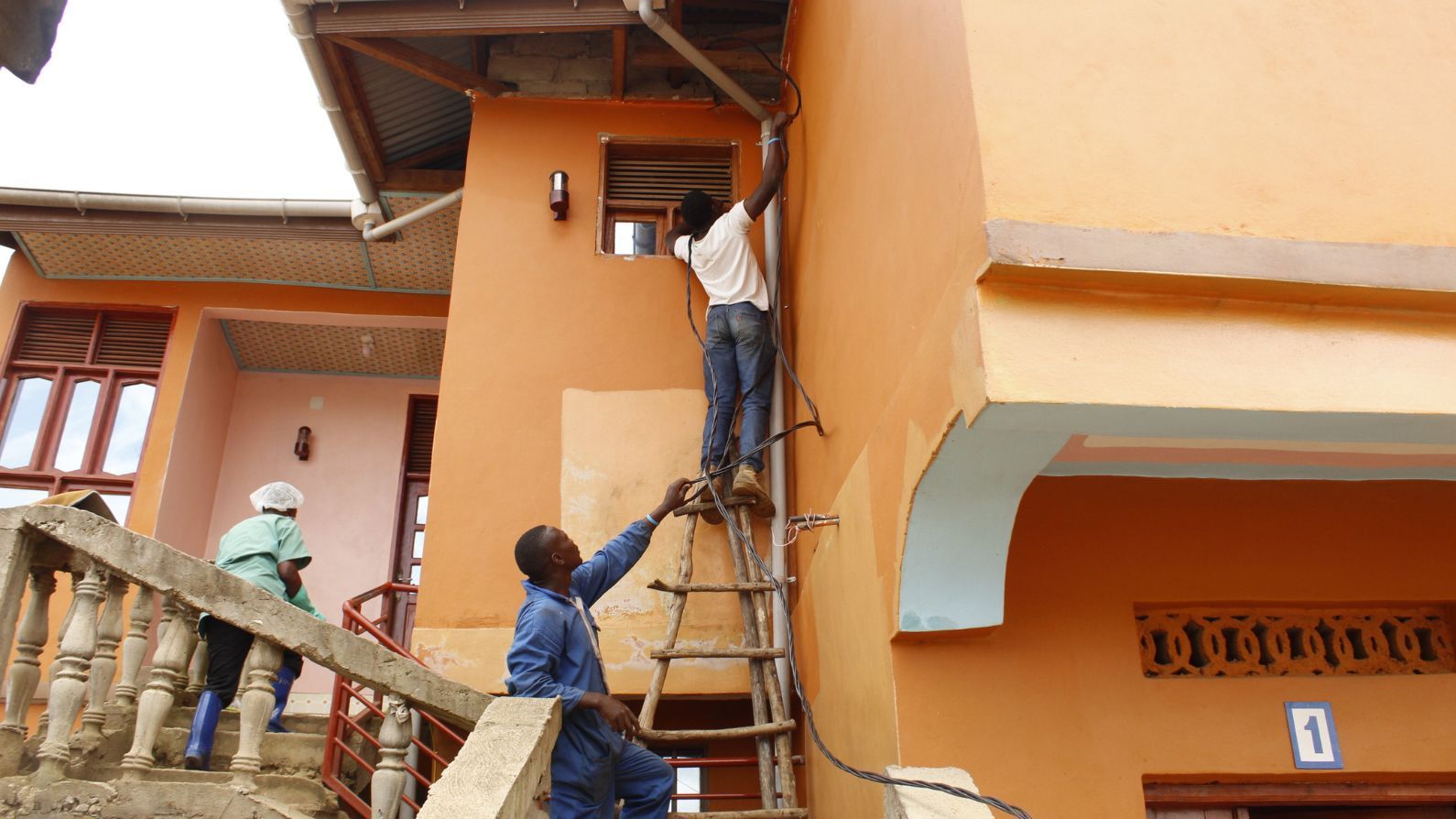- About
-
Projects
- Projects
-
Projects in Africa
- Overview
- Connecting off-grid girls to off-grid energy
- Regional hospital centre electricity project
- Installing photovoltaic systems and creating a MOOC for training
- Improvement of working conditions for women in Senegal
- Connection of the hospital centers of Beni
- Women Solar Academy
- Acteurs
- Solar energy for better health in Ivory Coast
- Rural entrepreneurship around innovative productive uses of electricity
-
Projects in Latin America
- Overview
- Provide solar photovoltaic systems to families living off-the-grid
- Provide accessibility for rural communities to a low-voltage electrical sytem
- Installation of solar panels for the Resilient Medical Centers
- Solar street lights installation in Bongaba
- Luz al Barrio
- Electrical Kits for houses
- Building safe community places
- Multi-regional project
- Partners
- Newsroom
- Call for Projects
- Contact us
Connection of the hospital centers of Beni

-
LOCATIONDemocratic Republic of the Congo
-
PARTNERSHIPGreen Energy for All
-
Date2020
Renewable energy is at the heart of sustainable development. Green Energy for All promotes and supports energy access in deprived areas in developing countries.
In Beni, Democratic Republic of the Congo, the lack of lighting at night in the hospital is a constraint that makes nighttime medical interventions difficult. But the biggest difficulty faced by doctors is storing medicines in refrigerators and using laboratory equipment that requires electricity.
The Nexans Foundation has supported the Beni hospitals connection project, which aims to enable six hospitals to benefit from free connection to the electricity distribution network. In the long term, this project will contribute to the improvement of health care.
More specifically, the connection to the electrical network gives the hospitals access to reliable and permanent electricity. On the one hand, it allows them to use electrical equipment that requires a 24-hour power source. On the other hand, it allows hospitals to save money on their energy bills.
What is the immediate development goal at the end of the project?
- The six hospitals connected to the power grid provide improved health care to patients and pregnant women.
- The six hospitals invest more in basic electrical equipment needed for patient care.
What are the expected results of the project?
- The six connected hospitals save money on their energy bills.
- The six connected hospitals can use the available electrical equipment (incubators, refrigerators etc.) in an optimal way.
The major problems due to the lack of access to the distribution network were the unavoidable interruptions of the electrical generators and the very high cost of using them. The lack of access to stable, permanent electricity created significant obstacles to providing quality care; lack of medication, slow diagnosis, lack of light at night, etc. For example, one doctor explained that before the connection, he frequently had to perform deliveries only by flashlight.
Since the connection, it has been observed that the stability and permanence of electricity allows for much better management of medical interventions, which are faster and more efficient. The light, available 24 hours a day, makes the work of doctors and nurses much easier during the night. All medical interventions at night are now possible and all the electrical equipment can be used in an optimal way. Finally, the cell phones of the medical staff can easily be recharged, which ensures that the doctors can be reached at any time.
Some of the patients the Nexans Foundation team met during the hospital visit also testified to the improvements in the hospitals from which they directly benefit. At night, patients are able to easily access the bathroom (which is often located outside the building), charge their cell phones so that they can be reached by their families, and have light near their beds at all times.
Hospitals connected to the electrical distribution network
Yearly beneficiaries
